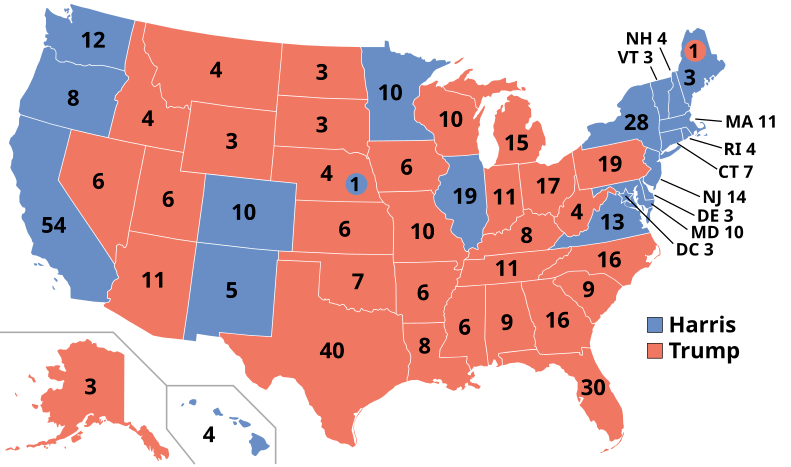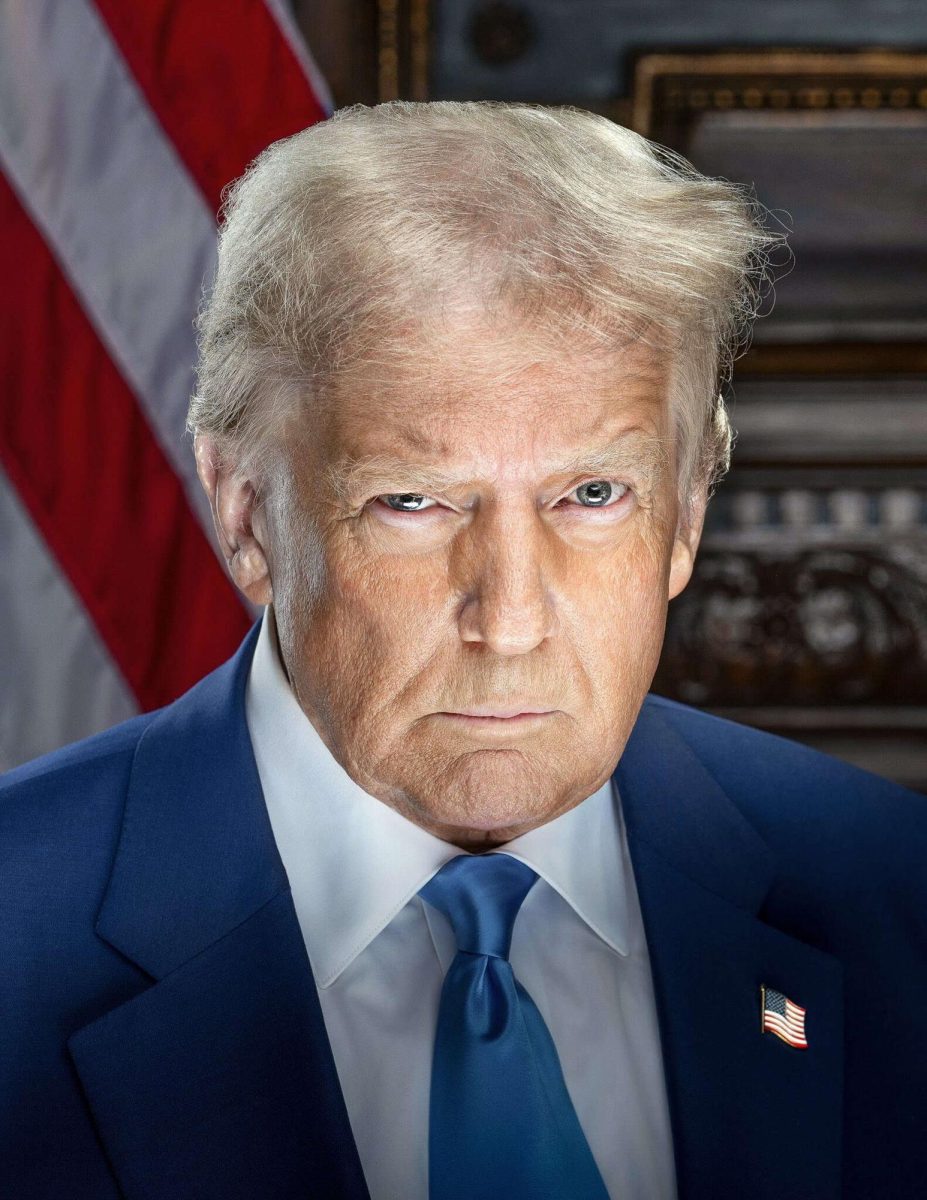Although a highly controversial and often outright problematic figure, President Trump won the 2024 election and will serve as the 47th president of the United States, sparking complex feelings among American voters. Many feel Trump’s victory marks the end of Biden’s social programs; however, the mixed results of several “swing states” indicate continued social progression, offering liberals hope.
Trump started his political career as an independent, forcing the Republican Party to allow him to run as the party nominee in 2016. As a result, Trump introduced many non-Republican ideas to the party, most notably his relative leniency to ward abortion compared to his predecessors. Before 2016, talks of allowing abortion under the circumstance of rape, incest, or threat to the mother generally did not exist as a stance on the Republican platform until Trump introduced it from his Independent party roots, which is a step in the right direction. Some conservative states such as Mississippi, a Republican stronghold, adopted Trump’s ideology on abortion now allowing for abortions in instances of rape. Furthermore, despite Trump’s role in the overturning of Roe v. Wade, many states that voted red, such as Nevada, Wisconsin, and Wyoming also adopted reproductive rights amendments to their state constitutions.
Trump is also highly outspoken in his anti-transgender policy and positions. However, Delaware showed its true liberal colors in not only awarding its electoral votes to Vice President Harris but also elected the first openly transgender congresswoman in U.S. history, Sarah McBride, who defeated John Whalen III with 57.8% of the vote. Before McBride’s election to the Delaware State Senate in November 2020, she focused on working with the Human Rights Campaign, where she advocated advancing policies for transgender equality. As a state senator, McBride worked on issues of healthcare access, workers’ rights, and equality, pushing for legislation that benefits marginalized communities and she aims to continue working on those issues as a member of the House of Representatives.

Trump aims to solidify the United States’ path toward energy independence as a domestic policy priority, building upon his withdrawal from the Paris Agreement on November 4, 2019, and seeking to further cement America as a global energy powerhouse. Trump’s administration previously emphasized increasing the U.S.’s role as a major energy exporter and self-reliance on foreign oil, particularly from OPEC (Organization of Petroleum Exporting Countries), a global organization comprised of 22 oil-rich states that essentially controls the supply and price of oil prices. Although claiming to promote secure and fair prices for petroleum, OPEC lies in unstable and corrupt nations such as Iran, Saudi Arabia, Libya, Iraq, and Venezuela; hence, allowing for periods of oil shortages and inflated prices, as seen during the 1979 Oil Crisis. Furthermore, many leaders in OPEC nations take advantage of natural gas profits in order to secure their corrupt regimes as well as suppress internal strife and perpetuate external regional conflicts. Therefore, by reducing reliance on foreign oil producers, the U.S. would lessen its vulnerability to price fluctuations and geopolitical instability caused by oil-producing powers like Saudi Arabia and Russia. This shift would also give the U.S. greater leverage in global energy discussions.
While Donald Trump’s re-election sparks widespread debate, many developments indicate that Trump’s presidency may shift conservative views and potentially steer America towards social advancements.
































